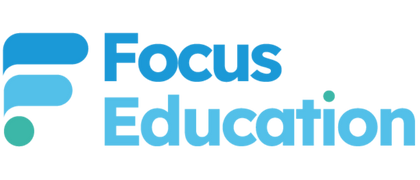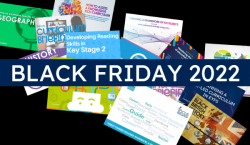
Focus Video Hub- Online Video Training.
In response to school requests and the current budget crisis in schools, Focus took the decision earlier this year to offer filmed versions of a selection of our courses.
Teachers and heads have repeatedly described how supply teacher costs and reducing budges is impacting on teacher CPD. They are struggling to fund staff taking time out of teaching to go on courses.
When they do manage to find the money, these teachers and senior leaders often tell us how useful the course would have been for their colleagues (but they can’t afford to send them).
In response to this feedback, we took the decision to film several courses and offer these so staff can watch these together, or on their own at their convenience.
There are activities that take place during the courses, pauses for reflection, time for discussion and training notes that go alongside the videos (including the powerpoint in case you want to use some of the resources).
No, it’s not the same as being in the room at the actual course, but we hope it’s the next best thing. If you want to ask questions to the speaker, we can provide their email addresses and you can ask them direct. There is also a list included of publications or websites referred to throughout the course.
The Video Hub allows you to download the online video training onto your computer or server or stream them direct from our website (so no storage is required, just an internet connection).
We’ve had overwhelmingly positive feedback from teachers and heads and are delighted we can offer another solution to budget issues.
Developing Excellence in Maths and Science - Video Hub
Course Description
This online video training will provide science and maths subject leaders and coordinators with practical ideas, to enable them to improve standards in maths and science, developing and improving links with English and maths so that pupils develop an understanding of how their learning is meaningful and can be applied in context. This training will enable all subject leaders to ensure they can impact on standards, helping pupils reach the expected standards by the end of Key Stage 1 and Key Stage 2, taking into account the renewed national emphasis on science from both the DfE and from Ofsted.
The training will address the following:
- Best practice in maths and science: ensuring progression through each year group;
- The application of maths in science;
- Developing English through science and the importance of spoken language;
- Assessment and monitoring standards.
The benefits of attending this training:
- It will provide you with a clear understanding of how basic skills can be applied across core subjects;
- It will enable you to monitor and evaluate the application of basic skills in your setting;
- It will provide you with practical resources to use in school.
Ensuring the Learning Challenge Curriculum is Knowledge-rich & Assessed Appropriately - Video Hub
Course Description
In her latest speech Amanda Spielman talks about a knowledge-rich curriculum that helps to provide greater breadth and balance across the Primary curriculum. According to Ms Spielman, there is a reduced understanding of the curriculum in the current workforce and it is unlikely that many current training programmes will plug the gap.
Focus has adapted its Learning Challenge curriculum so that it meets the criteria of the 'golden three': knowledge-rich; teacher led and whole class teaching.
This training is about how using the learning challenge curriculum, incorporating its modifications, ensures curriculum cohesion. The training provides 'down-to-earth' practical suggestions that helps to reduce teacher workload.
The training will:
- Look at what a curriculum that takes account of the latest initiatives should look like;
- Considers how knowledge-rich your current curriculum is and the need to put knowledge first;
- Ensures your science curriculum is fit for purpose;
- Give as much attention to developing pedagogy alongside the curriculum, that is a teacher led curriculum delivered to the whole class;
- Helps you to check if your curriculum has really embraced the concept of 'deepening learning' at each stage and providing greater challenges within the construct being taught;
- Look at models that provides maximum opportunity to link English, through literature, to the broader curriculum;
- Considers new assessment arrangements, especially for the non-core curriculum as well as science;
- Consider how 'assessment for learning' procedures may need to sharpen especially in relation to pupils' misconceptions and barriers to learning;
- Consider how to provide opportunities for pupils to increase their resilience, resourcefulness and productivity;
- Provide a case for improving both pupils and teacher questioning so as to enable greater understanding to be central to all learning;
- This training aims to delve deeply into the curriculum and learning culture at school and academy level. It will make you take stock, look at the bigger picture and help to guide you to make decisions that are based on focusing on what we need to know about our learners at any time. It will also provide guidance and give you examples of different models to consider for your use.
Creating a Statement of Curriculum Intent - Video Hub
Course Description
This training is aimed at primary, infant and junior school and academy leaders, putting an emphasis on leaders' role in creating a clear statement about their curriculum intent. There will be an emphasis on creating a 'whole-school' ethos that embraces the principles of 'harnessing and maximising the geographical, cultural and historical context of the school within its community.' (Amanda Spielman 2018)
- As you are no doubt aware, the new Ofsted framework will put much emphasis on your curriculum intent, implementation and impact. The inevitable part of this, going forwards, is that school's will have to be clear about their curriculum intent and how the needs of the learners have been taken into account.
- This is a workshop session where you will be encouraged to use a proforma to outline the way your curriculum is bespoke to your school, starting with your context. This will then be used to help you create your curriculum intent statement.
- The half-day will focus on the context of your school, considering the positive features that pupils bring, as well as the barriers they may have to learning. In addition, it will look at the curriculum and recognise the decisions you have taken because of the pupils' context.
The statement will be along the lines of: 'Because we know this about our pupils, we are doing ...' This will focus on both contextual and academic features.





